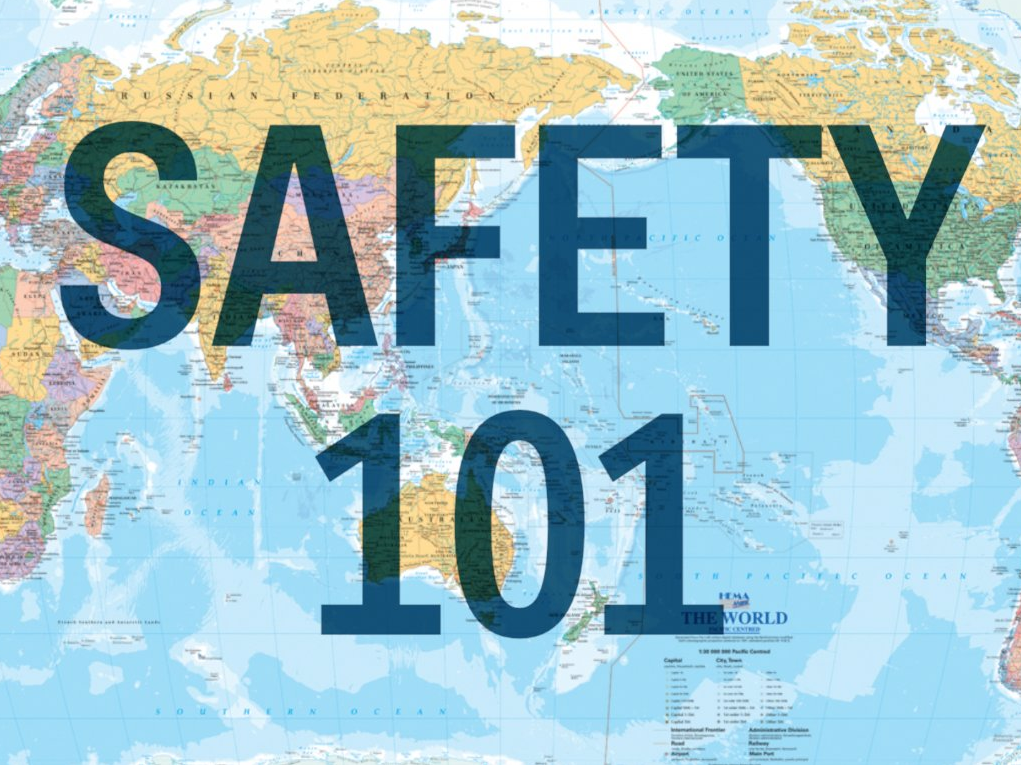
Being in a different country can be daunting. Everything from the currency, the language, to the law is different. Learning to stay safe during your time abroad is essential to enjoying your break. Below are three tips:
- Staying safe when out and about
Prior to travelling, learn about the laws and cultures of the country you are travelling to. In some countries, behaviour which is acceptable in the US is unacceptable and can be punishable.
Thieves lurk in every country and you may find that you are a greater target to pick-pockets during your vacation that you were at home. Ensure that your valuables are always kept safe; while you may have your phone and camera out regularly to take photographs, avoid having it on display for too long, or too openly. Instead of hanging cameras around your neck, put them safely in bags. Ensure your money, your wallet and your travel documents are always kept safe; if you are staying at your hotel, leave them in a protected safe (but only if you are confident that it is secure) – otherwise, keep them in your bag. Keeping money in your back pocket is not a good idea; pick pockets are attuned to noticing bulges of money in traveller’s pockets and you don’t want to be a target.
In many places, tourists are advised to refrain from travelling at night. During the night, it’s best to stay either in your hotel or on your resort. If you do have to go out at night, make sure you stick with others and try to find well-lit places. Keep your wits about you at all times and look out for people who are watching you, standing close to you, or seemingly listening in on your conversations; they might be trying to find out where you are staying, and whether you are going to be on your own at any point during your stay.
- Driving
In some countries, wearing a seat belt is not a legal requirement; even so, wearing a seat belt is always the most sensible choice, and could save your life in the event of a traffic accident. Statistics show that, on average, more than 1 million people are killed every day in road traffic accidents, and car crashes account for around 2% of all deaths. Similarly, although many countries do not require children to remain in car seats, hiring a car seat (or taking one with you) and using it is still a good idea. More often than not road signs in foreign countries use similar styles to point out hazards. Keep a close eye on these whilst driving. Look at websites such as MySafetySign if you struggle to remember all the different types of signs.
Try to keep your travelling to the day time. Travelling at night can be significantly more risky than travelling during the day; in many countries, roads are not properly illuminated, increasing the risk of an accident occurring.
- Health
During your time abroad, you are unlikely to be able to access the same level of medical care you are permitted to access at home. Prior to flying, you need to ensure that all your travel documentation is in order, and that you will be able to receive care if you require it.
The diseases present in other countries are likely to be different to those in your home time; malaria is a common disease in foreign countries but medication taken before, during and sometimes after your journey can decrease your risk of contracting the disease. Vaccinations are also available to protect against other diseases that are prevalent in foreign countries; speak to your doctor prior to flying to ensure you are as covered as you can be. Other diseases, such as Zika and Ebola, cannot be prevented; travellers are advised to select different destinations.
Less-serious diseases, such as tummy bugs, are often caught during holidays abroad due to the different water and food available. These disease can be easily treated with over-the-counter medications. Most medications can be bought in the country you are visiting, but you may prefer to bring a brand from home that you are familiar with as part of your first aid kit.
